16+ SAMPLE Startup Agreement
-
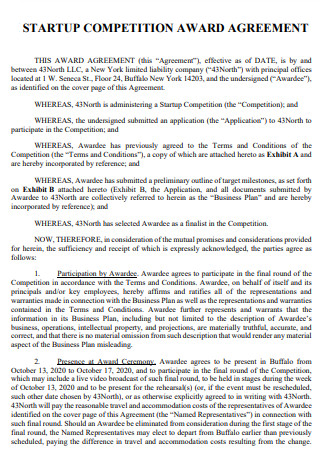
Startup Competition Award Agreement
download now -
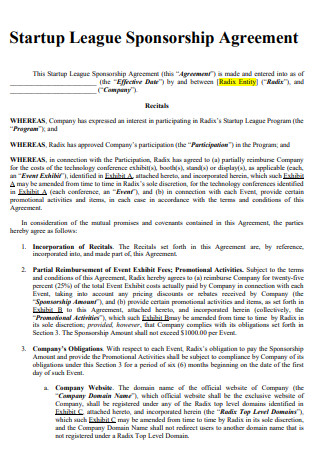
Startup League Sponsorship Agreement
download now -
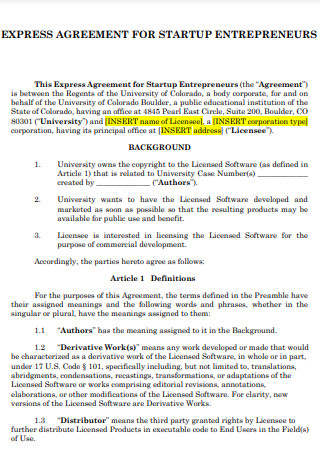
Startup Entrepreneurs Express Agreement
download now -
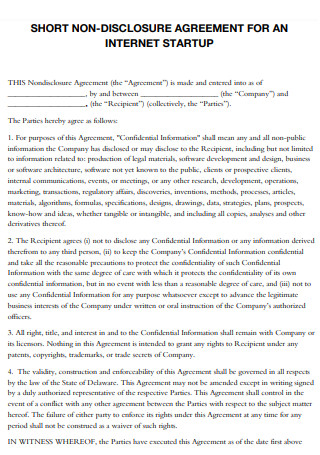
Startup Non-Disclosure Agreement
download now -
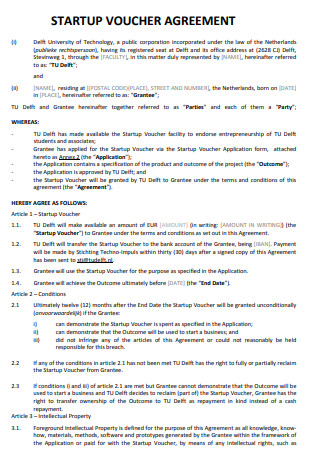
Startup Voucher Agreement
download now -
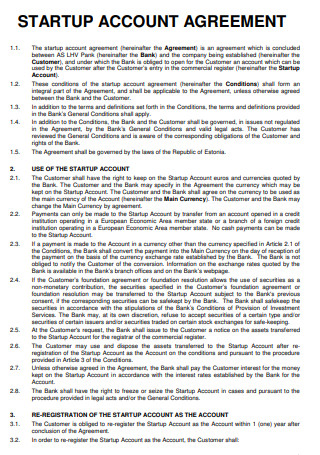
Startup Account Agreement
download now -
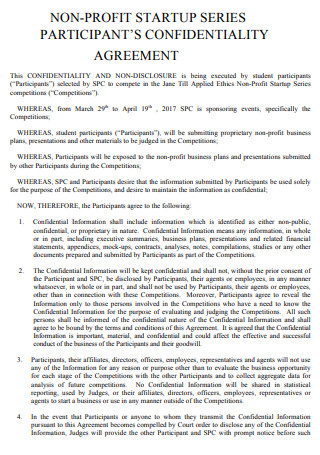
Startup Participant Agreement
download now -
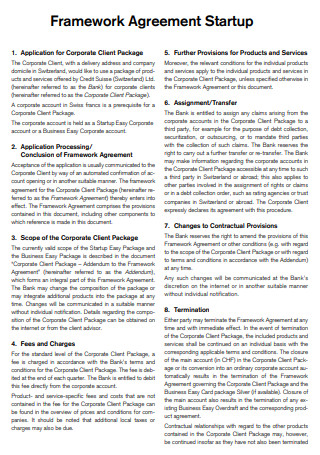
Startup Framework Agreement
download now -
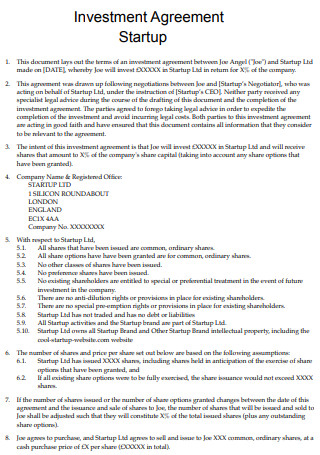
Startup Investment Agreement
download now -
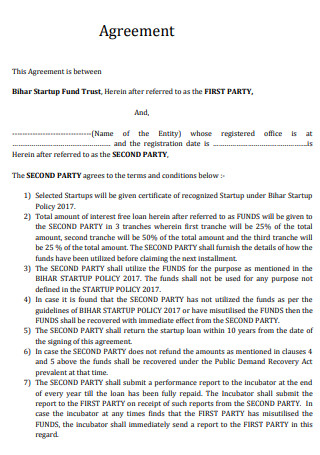
Sample Startup Agreement
download now -
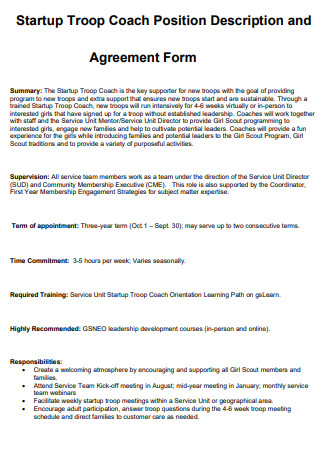
Startup Agreement Form
download now -
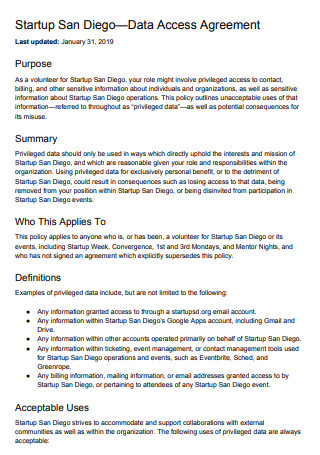
Startup Data Access Agreement
download now -
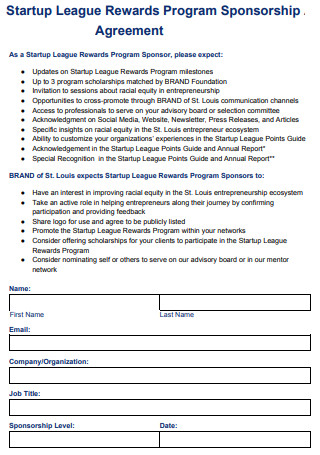
Startup League Rewards Program Sponsorship Agreement
download now -
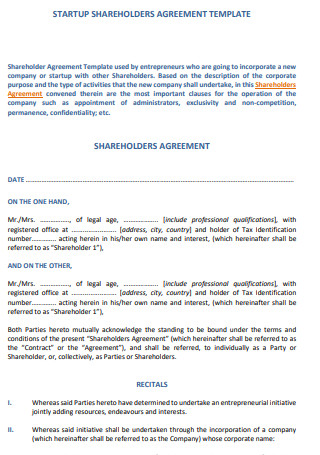
Startup Shareholders Agreement
download now -
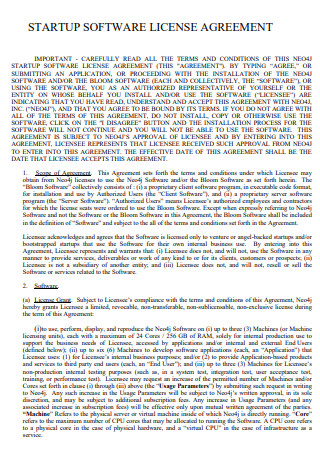
Startup Software License Agreement
download now -
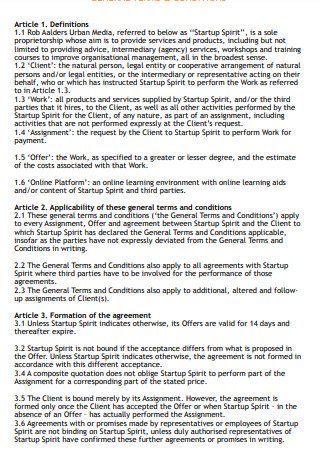
Startup Agreement Example
download now -
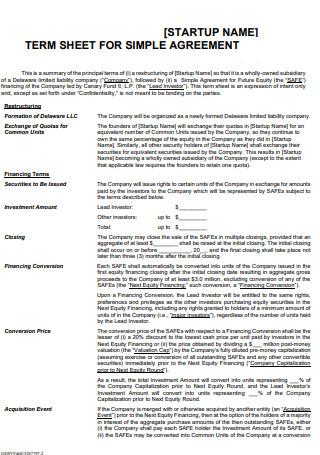
Startup Agreement Template
download now
FREE Startup Agreement s to Download
16+ SAMPLE Startup Agreement
What Is a Startup Agreement?
Components of a Startup Agreement
How To Write a Startup Agreement
FAQs
What is the purpose of a founder’s agreement?
What are the four types of businesses?
What are the essential legal documents you need for a startup business?
What Is a Startup Agreement?
A startup agreement, also known as the founder’s agreement, is a legal contract that an individual presents to their co-founders for the pre-incorporating process of a startup business. The document covers various elements and defines the roles, responsibilities, and liabilities of the people starting up a small organization. The agreement also aims to distribute the intellectual property rights to each business partner of the startup. The startup agreement is vital to demonstrate the seriousness of an individual to pursue starting up a business. It is also advisable to create the contract at the beginning of the lifecycle of the company to get every individual on the same page. The startup agreement serves as the pillar of every starting business, no matter the industry. It aims to set the tone and lay down the foundation of interacting and managing the organization with a team. While it is not mandatory to write up a startup agreement for a starting company, having one comes in handy to ensure that everyone has a clear comprehension of every critical financial and legal issue that surrounds the business.
According to the statistical data from Statista as researched by the Statista Research Department about the number of businesses less than a year old published in January 2021, over 804 thousand businesses are less than a year old and still in their startup phases in 2020.
Components of a Startup Agreement
While there is no standard format when it comes to writing a startup agreement or a founder’s agreement, the individual responsible for writing the startup agreement must be aware of the terms and conditions that are essential to make a comprehensive and enforceable agreement. The section below elaborates the necessary components of a startup agreement that the company must possess. Read the following items and their definitions to gain a better understanding of the agreement.
How To Write a Startup Agreement
The entire process of writing a startup agreement is different for various companies. The procedure for creating the document is dependent on the size, scope, and scale of the organization. Despite the stark differences between one company from another, there are still common denominators when it comes to developing the startup agreement. The section below guides you through writing a startup agreement for your startup company.
-
1. Decide if a Co-Founder Relationship Is the Best Option For the Company
Before writing the document, proceed with an initial meeting to align with partners. Discuss the company goals, expectations, culture, values, and work structure. One of the most common disputes that arise stems from discussions of forming partnerships or LLCs. While it is impossible to find a set of individuals that share similar opinions at a hundred percent, your co-founders need to be on the same page in the most common areas of the agreement.
-
2. Establish the Roles and Responsibilities of Each Individual
Many startups begin with two or three people doing multiple tasks and activities. If you are the most prominent figure in the group, they can assign the tasks they need to do. It is necessary to negotiate each role and responsibility before setting anything permanently. For a company, there must be a chief executive officer (CEO), chief operating officer (COO), chief financial officer (CFO), chief marketing officer (CMO), and chief technology officer (CTO). If there are only two individuals, the priority is the CEO and CTO. The number of officers depends on the number of individuals present in the company.
-
3. Produce Essential Legal Decisions
One of the most typical fallouts of startups involves legal mistakes. It is necessary to familiarize yourself with general legal issues that startup companies face and the possible procedures for handling these situations. The matters that you need to look into include intellectual property rights, vesting schedules for share insurances, founder departure solutions, management of daily operations, understanding basic legal terminology, and making decisions according to corporate bylaws.
-
4. Establish the Equity Compensation Management
There must also be a clear discussion about the co-founders settling equities among each other. It is necessary to discuss this thoroughly with all co-founders since assuming that everyone wants a fair share of the fair market value (FMV) is not always reasonable for each person. It is best to settle equity compensation through contributions, resources, and talents.
-
5. Set Up Meetings with a Startup Lawyer
After completing the basics of the startup agreement, set up a meeting with a startup attorney and the rest of the team members. Through this initial meeting, you can discuss and learn about the unique dynamics and objectives of the agreement and transfer them into a valid and enforceable document.
-
6. Review the Draft and Let the Founders Sign and Date the Agreement
After the meeting, you can draft a first copy of the agreement for the startup lawyer. Review the document separately and together, taking note of the possible changes that the document needs, and ask the lawyer to make the necessary revisions before allowing the signing of the agreement. After settling the modifications, allow all the founders to sign the document. Don’t forget to indicate the signing date.
FAQs
What is the purpose of a founder’s agreement?
There are different reasons for creating a founder’s agreement for a startup business. For one, it establishes a sense of ownership when it comes to the roles and responsibilities of founders. It also offers necessary guidelines for handling disputes, provides provisions for terminating the contract, supplies the procedures for dissolution, and solidifies the idea of operating a business.
What are the four types of businesses?
The four major types of businesses present include sole proprietorships, partnerships, corporations, and LLCs.
What are the essential legal documents you need for a startup business?
In creating a startup business, the law requires essential legal documents to make sure that a company follows the requirements. The required documents a startup needs include trademark licenses, articles of association, non-disclosure agreements, offer letters, employee contracts, shareholder’s agreements, founder’s agreements, company bylaws, intellectual property assignments, business plans, and terms of use agreement.
Constructing a startup agreement requires multiple steps that need an expert’s guidance. Since the document tackles different issues regarding finances, intellectual property, fair market values, and roles and responsibilities, the founders must find a way to effectively negotiate with each other to agree on certain provisions to operate the company smoothly. Ensure that there is a startup lawyer to help the founders along the way. Familiarize yourself with a startup agreement by downloading the 16+ SAMPLE Startup Agreement in PDF, available in the article. Get yours today, only at Sample.net.
